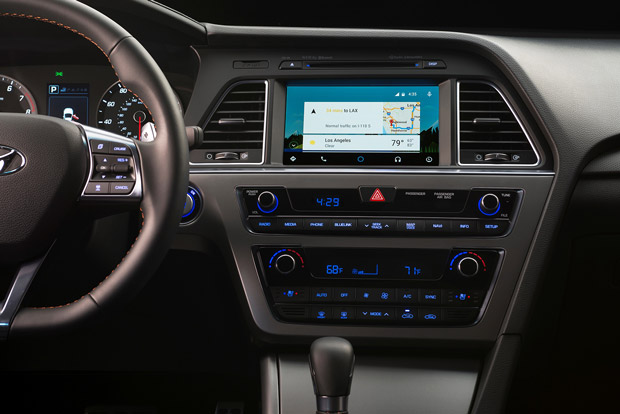Automakers Tell Apple, Google To Keep Their Stinkin’ Paws Off Potentially Lucrative In-Vehicle Data
Tech giants like Apple and Google are making a big play to take over your car’s dashboard. Their respective CarPlay and Android Auto platforms allow you to connect your smartphone via a USB cable (or wirelessly in future implementations of CarPlay) and mirror functionality to your vehicle’s center-mounted display. Phone, texting, audio streaming, and navigation functionality is all made accessible through the touch screen in a format that supposedly cuts down on distracted driving, making the roads safer for us all.
As we find ourselves becoming part of an increasingly connected world, it was only a matter of time before our vehicles started becoming an extension of the smartphones that we carry with us 24-7-365. But with this increased power and access granted to Apple and Google comes great responsibility.
Automakers aren’t exactly convinced that these two tech giants won’t just rob them blind of potentially lucrative data that can be gleaned from their rolling tech masterpieces. This apprehension is especially relevant when Google comes into the picture, as the company’s primary business revolves around sucking up as much data as possible on its customers. Apple, on the other hand, claims to have no such ambitions. "They’re gobbling up everything they can learn about you and trying to monetize it,” said Apple CEO Tim Cook in early June at EPIC's Champions of Freedom event. “We think that’s wrong. And it’s not the kind of company that Apple wants to be."
In effort to protect its own interests and keep tech companies at bay, auto makers are putting up a virtual “firewall” that prevents access to critical systems including steering, brakes, and throttle along with seemingly less critical information such as the range left before a vehicle is out of fuel (be it a fossil fuel or a lithium-ion battery pack). Companies like Google could use range information from your vehicle to help direct you to the gasoline stations that it deems worthy of your attention.

Apple CarPlay interface in a Honda Civic
Ford, which is rolling out its new Sync 3 infotainment system across its vast family of cars and trucks, is keenly aware of how technology has become a game changer in the automotive market. The company was one of the first to embrace highly integrated and advanced infotainment system with its problem-plagued MyFord Touch and MyLincoln Touch, the successors to Sync 3. "We need to control access to that data," explained Don Butler, executive director, Connected Vehicle and Services for Ford. "We need to protect our ability to create value" from new digital services built on vehicle data.”
"The risk is, if you give up control and somebody else figures out that business model, then you lose the future revenue stream," added Friedmar Rumpel, a VP for consultant firm AlixPartners’ automotive business.
And it is a mighty tasty revenue stream, as AlixPartners forecasts that global revenue from connected cars to balloon from a $16 billion in 2013 to a staggering $40 billion within the next three years. Everyone wants in a slice of that pie and giving companies like Google and Apple an easy “in” this early in the game could come back to bite automakers in the butt years down the road.


